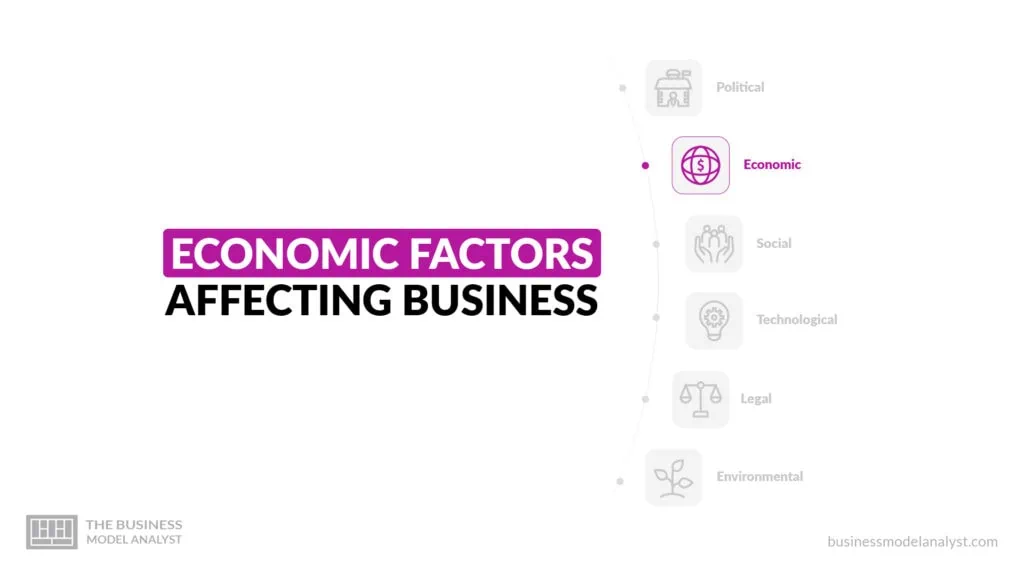Analysis: Economic Factors Drive Down European Car Sales

Table of Contents
Soaring Inflation Erodes Purchasing Power
Soaring inflation across Europe is significantly impacting consumer spending, and the automotive industry is feeling the pinch. Reduced disposable income leaves less money for big-ticket items like new cars, forcing a shift in consumer priorities.
Reduced Disposable Income
Inflation's relentless rise has eroded purchasing power. Increased costs across the board – food, energy, housing – are leaving less money for discretionary spending.
- Increased food and energy costs: The surge in energy prices, particularly natural gas, has had a cascading effect, increasing food production costs and driving up grocery bills.
- Higher housing expenses: Rent and mortgage payments are rising significantly, squeezing household budgets further.
- Decreased savings: Many consumers are dipping into their savings to cover essential expenses, leaving little room for significant purchases like new vehicles.
Data from Eurostat shows inflation rates in several major European countries exceeding 10% in 2022, directly correlating with a sharp decline in new car registrations. This demonstrates a clear link between the rising cost of living and decreased demand for new vehicles.
Shift in Consumer Priorities
Faced with escalating living costs, consumers are prioritizing essential spending over discretionary purchases. This translates into a tangible shift in the automotive market.
- Increased demand for used cars: The used car market is booming as consumers seek more affordable alternatives to new vehicles.
- Postponement of car purchases: Many potential buyers are delaying or canceling their plans to purchase new cars until economic conditions improve.
- Opting for public transport: Some consumers are opting for public transport or carpooling to reduce their transportation costs.
Market research indicates a growing trend towards delaying major purchases. Surveys show a significant percentage of consumers are postponing buying a new car due to economic uncertainty and the rising cost of living.
Rising Interest Rates Increase Borrowing Costs
The European Central Bank's (ECB) aggressive interest rate hikes aim to combat inflation but inadvertently increase the cost of borrowing, making car financing more expensive. This directly impacts consumer affordability and purchasing decisions.
Higher Loan Repayments
Increased interest rates translate to higher monthly loan repayments for car buyers, making new vehicles less accessible.
- Impact on monthly payments: Even a small increase in interest rates can significantly increase monthly payments, potentially making a car purchase unaffordable for many.
- Longer loan terms: Consumers may opt for longer loan terms to reduce monthly payments, but this increases the total cost of ownership over the life of the loan.
- Increased total cost of ownership: The combination of higher interest rates and longer loan terms dramatically increases the overall cost of owning a car.
For example, a €20,000 car loan with a 5% interest rate will have significantly higher monthly payments compared to the same loan with a 2% interest rate. This difference becomes even more pronounced with larger loan amounts and longer loan terms.
Reduced Consumer Credit Availability
As interest rates rise, lenders become more risk-averse, tightening lending criteria and reducing the availability of consumer credit.
- Stricter lending criteria: Banks are implementing stricter criteria for approving car loans, making it harder for some consumers to qualify.
- Higher rejection rates: The number of loan applications being rejected is increasing, leaving potential buyers without financing options.
- Reduced loan amounts: Even when approved, consumers may find that they can only secure smaller loan amounts, limiting their purchasing options.
Many major European banks have reported tightening their lending policies in response to rising interest rates and economic uncertainty, further contributing to the decline in European car sales.
Energy Prices and Supply Chain Disruptions
High energy prices and ongoing supply chain disruptions are additional headwinds for the European car market, impacting both production and consumer demand.
Increased Fuel Costs
Soaring fuel prices directly increase the total cost of car ownership, dissuading potential buyers and impacting demand for less fuel-efficient models.
- Impact on running costs: Higher fuel prices increase the overall cost of running a car, making it less attractive to budget-conscious consumers.
- Influence on fuel-efficient car choices: Consumers are increasingly looking for more fuel-efficient vehicles or considering electric vehicles (EVs) as alternatives.
- Consideration of electric vehicles: The rise in fuel costs is accelerating the shift towards electric vehicles, although the initial purchase price remains a barrier for many.
Significant variations in fuel prices exist across European countries, with some experiencing much higher costs than others. This variation impacts car sales differently depending on the country's specific economic situation.
Ongoing Supply Chain Issues
The automotive industry continues to grapple with lingering supply chain issues, limiting production and affecting the availability of new cars.
- Semiconductor chip shortages: The global semiconductor shortage persists, causing delays in car manufacturing.
- Delays in manufacturing: Production delays lead to longer waiting times for new cars, further impacting consumer demand.
- Reduced availability of new cars: The combination of reduced production and increased demand for used cars results in limited availability of new cars in the market.
The ongoing impact of the semiconductor chip shortage and other logistical bottlenecks continues to constrain production capabilities, further contributing to the current market downturn.
Diminished Consumer Confidence
Economic uncertainty and geopolitical instability have eroded consumer confidence, leading to a reluctance to make significant purchases like new cars.
Fear of Recession
Concerns about a potential recession are impacting consumer spending patterns, leading to a wait-and-see approach.
- Impact of economic forecasts: Negative economic forecasts are dampening consumer sentiment and discouraging large purchases.
- Consumer sentiment indices: Consumer confidence indices are falling, reflecting growing concerns about economic prospects.
- Job security concerns: Job insecurity is another factor contributing to cautious consumer behavior.
Economic forecasts for Europe vary, but the general uncertainty is contributing to decreased consumer spending on non-essential items.
Geopolitical Uncertainty
Global events and geopolitical instability further fuel uncertainty and impact consumer spending decisions.
- War in Ukraine: The war in Ukraine has created significant economic instability, impacting energy prices and consumer confidence.
- Energy crisis: The energy crisis exacerbated by the war is further contributing to economic uncertainty and reduced consumer spending.
- General political instability: Broader geopolitical instability adds to the overall sense of uncertainty, affecting consumer confidence.
The impact of the war in Ukraine and related geopolitical factors significantly contributes to diminished consumer confidence and reduced demand for new cars.
Conclusion
The downturn in European car sales is a multifaceted issue driven by a convergence of economic factors. Soaring inflation, rising interest rates, high energy prices, persistent supply chain disruptions, and diminished consumer confidence all contribute to reduced demand. These challenges underscore the vulnerability of the automotive industry to broader macroeconomic trends. Understanding the interplay of these economic factors is crucial for navigating the current challenges in the European car market. Further analysis of these economic factors driving down European car sales is vital for industry stakeholders and policymakers alike. Stay informed and prepare for the ongoing evolution of the European automotive market.

Featured Posts
-
 Padres Vs Cubs Decisive Plays And Series Implications
May 28, 2025
Padres Vs Cubs Decisive Plays And Series Implications
May 28, 2025 -
 Kanye Wests Wife Bianca Censori Continues To Defy Fashion Norms
May 28, 2025
Kanye Wests Wife Bianca Censori Continues To Defy Fashion Norms
May 28, 2025 -
 Stay Out Of It Fans React To Hugh Jackmans Potential Role In Blake Livelys Lawsuit
May 28, 2025
Stay Out Of It Fans React To Hugh Jackmans Potential Role In Blake Livelys Lawsuit
May 28, 2025 -
 Cherki Transfer Man United Frontrunner Liverpool Trails
May 28, 2025
Cherki Transfer Man United Frontrunner Liverpool Trails
May 28, 2025 -
 National Lottery Reminds 1m Winner Of Approaching Deadline
May 28, 2025
National Lottery Reminds 1m Winner Of Approaching Deadline
May 28, 2025
